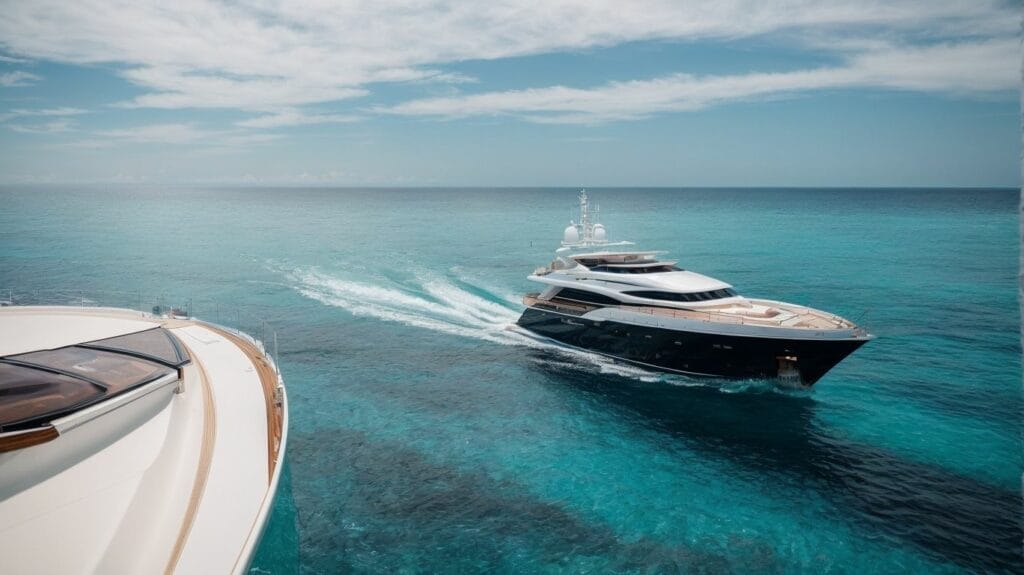Table of Contents
Add a header to begin generating the table of contents
When it comes to spending a day out on the water, the terms yacht and boat are often used interchangeably. However, there are distinct differences between the two. Understanding the key differences between a yacht and a boat can help you make an informed decision when choosing the right vessel for your needs.
A yacht is a larger and more luxurious vessel, typically used for leisure and recreation, while a boat is a smaller and more versatile watercraft, commonly used for transportation and fishing. Some notable differences between the two include:
What Is a Yacht?





- Size: A yacht is typically larger than a boat, ranging from 33 feet to over 100 feet in length.
- Purpose: Yachts are designed for leisure and luxury, often used for cruising, partying, and other recreational activities.
- Design: Yachts typically have a sleek and elegant design, with multiple decks, spacious cabins, and high-end amenities.
- Cost: Yachts are more expensive than boats, with prices ranging from hundreds of thousands to millions of dollars.
- Crew: Yachts often have a dedicated crew, including a captain, chef, and other staff, to enhance the onboard experience for guests.
- Size: Boats are smaller than yachts, typically ranging from 15 feet to 33 feet in length.
- Purpose: Boats are versatile and used for various activities, such as fishing, water sports, and transportation.
- Design: Boats come in various designs and styles, including traditional fishing boats, speedboats, and pontoon boats.
- Cost: Boats are generally more affordable than yachts, with prices ranging from a few thousand to tens of thousands of dollars.
- Crew: Boats are typically operated by the owner or a small group of people and do not require a dedicated crew.
- Sailing Yachts: These yachts use wind power and sails as their primary means of propulsion.
- Motor Yachts: These yachts use engines for propulsion and can reach high speeds.
- Sport Fishing Boats: These boats are designed specifically for recreational fishing, with features such as rod holders and live wells.
- Pontoon Boats: These boats have a flat deck and rely on pontoons for buoyancy, making them stable and suitable for leisure activities.
- Jet Skis: Also known as personal watercraft, these small vessels are designed for one or two people and can reach high speeds.
- Activities: If you plan on fishing or participating in water sports, a boat may be the better option. However, if you are looking for a luxurious and leisurely experience, a yacht may be more suitable.
- Budget: Yachts are generally more expensive than boats, so consider your budget before making a decision.
- Maintenance: Yachts require more maintenance and upkeep than boats due to their larger size and complex systems.
- Experience and Skill Level: Operating a yacht may require more experience and skill than operating a boat, so consider your capabilities before making a decision.
Key Takeaways:
- A yacht is typically larger and more luxurious than a boat, with a higher cost and crew required.
- Boats are smaller, more versatile, and accessible to a wider range of budgets and skill levels.
- Consider your desired activities, budget, and maintenance level when deciding between a yacht or boat.
What Is the Difference Between a Yacht and a Boat?
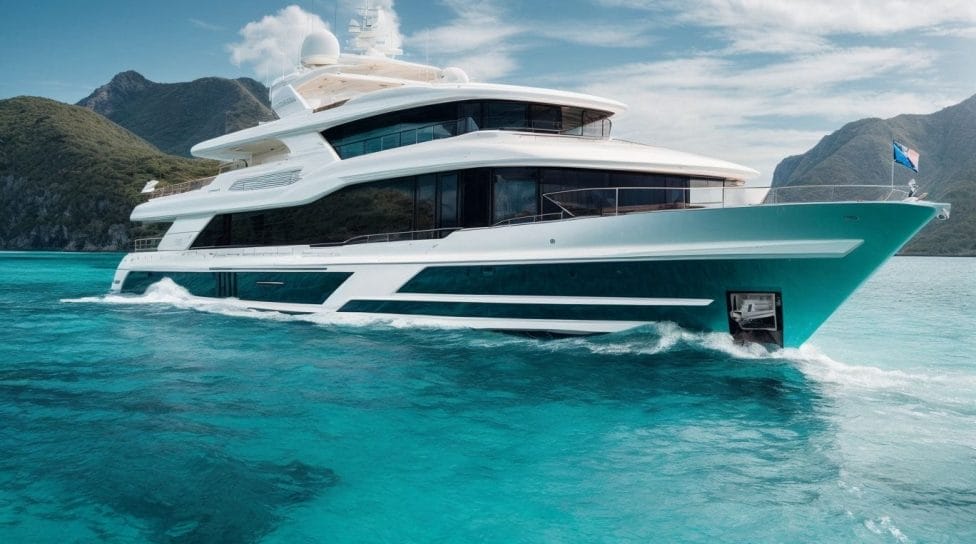
Photo Credits: Jetsetlegion.Com by Bruce Adams
A yacht and a boat may seem similar, but there are key distinctions between the two.- Size: Yachts are typically larger and more luxurious than boats, often measuring over 40 feet in length.
- Intended use: Yachts are designed for leisure and recreational purposes, while boats serve various functions like fishing, transportation, or water sports.
- Features: Yachts often have high-end amenities and advanced technology, while boats are more basic and utilitarian.
- Pricing: Yachts tend to be more expensive due to their size and luxurious features, whereas boats come in a wide range of prices.
What Is a Yacht?
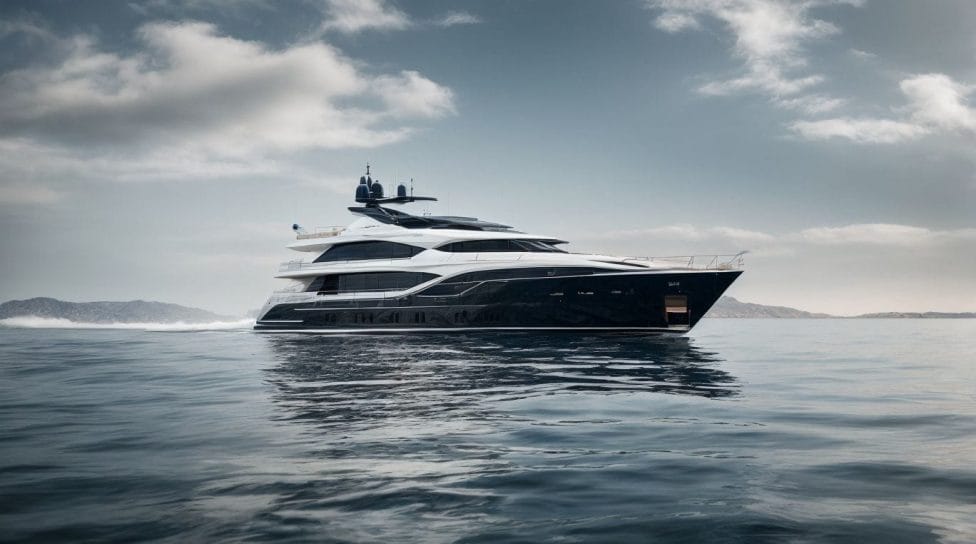
Photo Credits: Jetsetlegion.Com by Gerald Anderson
A yacht is a luxurious vessel that is often associated with wealth and prestige. But what exactly is a yacht and how does it differ from a regular boat? In this section, we will explore the defining characteristics of a yacht, including its size, purpose, design, cost, and crew. By the end, you will have a clear understanding of what sets a yacht apart from other types of boats.1. Size
When comparing the size of yachts and boats, there are a few key differences to consider:- Yachts: Yachts are typically larger than boats, ranging from 30 feet to over 100 feet in length. They offer more space for amenities and accommodations.
- Boats: Boats come in a wide range of sizes, from small dinghies to larger vessels. They are generally smaller than yachts and can vary in length depending on their purpose.
2. Purpose
The purpose of a yacht is typically recreational and leisure-based, providing luxurious accommodations and amenities for pleasure cruises, entertainment, and social gatherings. Yachts are designed for comfort and often feature spacious cabins, entertainment areas, and water toys for activities like water skiing or snorkeling. On the other hand, boats serve a variety of purposes, including transportation, fishing, water sports, and commercial activities. They are generally more utilitarian in design and may prioritize functionality over luxury. When choosing between a yacht and a boat, consider your intended activities and prioritize comfort or practicality accordingly. Pro-tip: If you’re primarily interested in hosting parties and enjoying lavish amenities on the water, a yacht might be the perfect choice for you. However, if you’re more focused on specific activities like fishing or water sports, a specialized boat may better suit your needs.3. Design
When comparing the design of yachts and boats, there are several key differences to consider:- Size: Yachts are generally larger and more luxurious, while boats come in a wide range of sizes.
- Purpose: Yachts are often used for leisure and luxury, while boats serve various purposes like fishing, transportation, or water sports.
- Design: Yachts prioritize aesthetics and comfort, featuring sleek lines and luxurious interiors. Boats focus more on functionality and practicality, with less attention to design elements.
- Cost: Yachts tend to be more expensive due to their size, customization options, and luxurious features. Boats are generally more affordable.
- Crew: Yachts often require a professional crew to operate and maintain them, while boats can be handled by individuals or small groups.
4. Cost
When evaluating the cost of yachts and boats, there are several factors to take into consideration. Here is a list of steps to help you assess the expenses:- Size: Generally, larger yachts have higher prices due to their increased materials and amenities.
- Purpose: Yachts built for luxury and leisure activities are typically more expensive than boats designed for recreational or fishing purposes.
- Design: Yachts with more intricate designs and luxurious interiors often come with a higher price tag.
- Cost: In general, yachts are more expensive than boats as they require more maintenance, fuel, and docking fees.
- Crew: Yachts often require a crew to operate and maintain, which adds to the overall cost.
5. Crew
When it comes to the crew, there are a few key considerations to keep in mind when choosing between a yacht and a boat:- Yacht: Yachts typically have a larger crew, including a captain, deckhands, engineers, and stewardesses. The crew is responsible for maintaining the yacht and ensuring a seamless experience for guests.
- Boat: Boats generally have a smaller crew, with one or two people who handle the operation and maintenance of the vessel.
What Is a Boat?
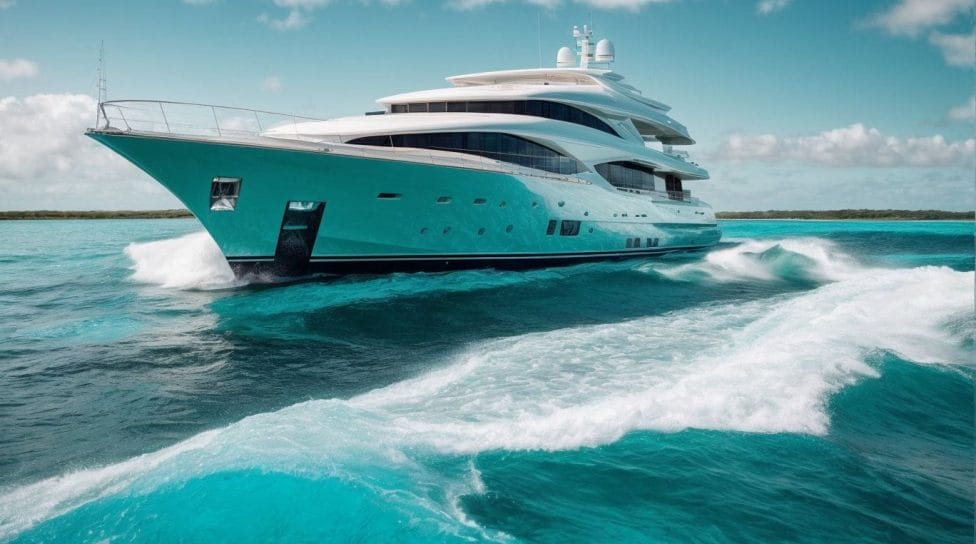
Photo Credits: Jetsetlegion.Com by Timothy Adams
When it comes to water vessels, the terms “yacht” and “boat” are often used interchangeably. However, there are distinct differences between the two. In this section, we will focus on boats and what sets them apart from yachts. We will discuss various factors such as size, purpose, design, cost, and crew, to gain a better understanding of what exactly constitutes a boat. So, let’s dive in and explore the world of boats.1. Size
When discussing the size of yachts and boats, it is important to consider the following factors:- Dimensions: Measure the overall length of the watercraft, typically in feet or meters.
- Width: Consider the width of the boat at its widest point.
- Depth: Determine the depth of the boat below the waterline.
- Weight: Take into account the weight of the vessel, including fuel, equipment, and passengers.
- Capacity: Evaluate the boat’s carrying capacity in terms of persons or weight.
2. Purpose
The purpose of a yacht and a boat differ based on their intended use and functionality.- Yacht: Yachts are designed for leisure and luxury, offering a high level of comfort and amenities for entertainment and relaxation.
- Boat: Boats serve a wide range of purposes, such as fishing, transportation, water sports, or commercial activities.
3. Design
When comparing the design of yachts and boats, there are several factors to consider:- Size: Yachts are typically larger than boats, with more spacious interiors and deck areas.
- Shape: Yachts often have sleek, streamlined designs, while boats can vary in shape and size depending on their purpose.
- Design Features: Yachts may have luxurious amenities such as multiple cabins, lounges, and entertainment areas, while boats are generally more utilitarian.
- Materials: Yachts are often constructed with high-quality materials like fiberglass or aluminum, while boats may use a wider range of materials.
- Style: Yachts are known for their elegance and sophistication in design, while boats can have a more rugged or functional appearance.
4. Cost
When it comes to cost, there is a noticeable difference between yachts and boats. Yachts are typically more expensive due to their larger size, luxurious features, and higher maintenance costs. The cost of a yacht can range from several hundred thousand dollars to millions of dollars, depending on factors such as the brand, age, and amenities. On the other hand, boats are generally more affordable and have a wider price range, ranging from a few thousand dollars for smaller recreational boats to several hundred thousand dollars for larger motorboats or sailboats. Ultimately, the cost will vary depending on the specific type and size of the chosen yacht or boat.5. Crew
When considering the crew for a yacht or a boat, there are a few factors to keep in mind:- Yacht Crew: Larger yachts typically have a dedicated crew that includes a captain, first officer, stewardesses, engineers, chefs, and deckhands. The crew size depends on the size and purpose of the yacht.
- Boat Crew: Boats generally have a smaller crew or may not require one at all. In some cases, the owner or operator may handle the boat alone or with minimal assistance.
- Responsibilities: Yacht crew members have specific responsibilities, such as navigation, maintenance, guest services, and cooking. Boat crew members, if present, may assist with navigation and maintenance.
- Qualifications: Yacht crew often have specialized training and certifications. Boat crew may not require extensive qualifications, but knowledge of boating safety is essential.
- Interaction with Guests: Yacht crew members provide personalized services to guests and ensure their comfort. Boat crew members, if any, may have limited interaction with passengers.
What Are the Different Types of Yachts and Boats?
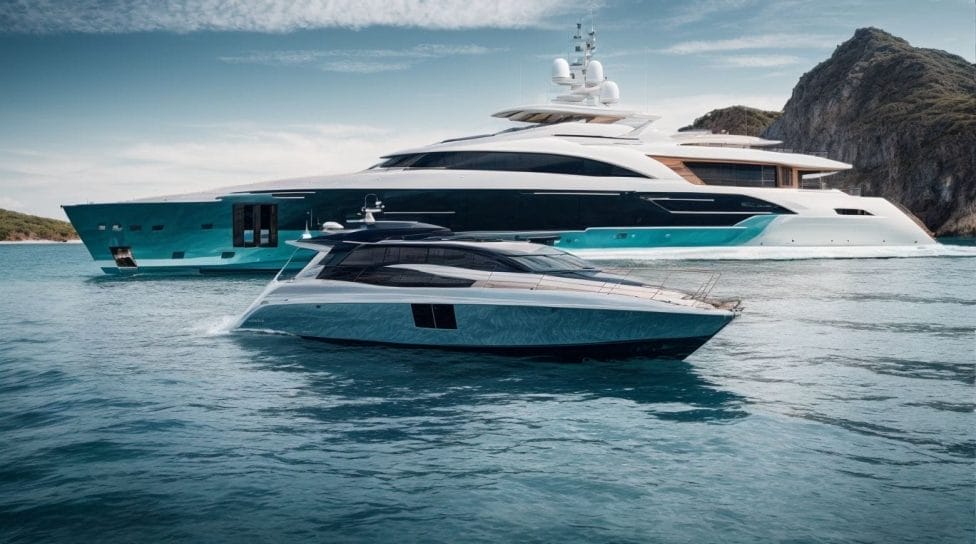
Photo Credits: Jetsetlegion.Com by Jordan Smith
Yachts and boats are often used interchangeably, but they actually refer to two different types of water vessels. In this section, we will explore the various types of yachts and boats, from the elegant sailing yachts to the speedy jet skis. Each type offers a unique experience on the water, catering to different preferences and activities. So, let’s dive in and discover the different types of yachts and boats available for your next aquatic adventure.1. Sailing Yachts
Sailing yachts are a popular type of boat that offer a unique and thrilling experience on the water. Here are some steps to consider when exploring sailing yachts:- Size: Determine the size of the sailing yacht based on your needs, whether it’s a small day sailor or a larger cruising yacht.
- Design: Consider the design features such as a fixed keel or a centerboard, as well as the layout and amenities below deck.
- Sail Plan: Evaluate the sail plan, including the number and type of sails, to ensure it suits your sailing goals.
- Handling: Assess the ease of handling the yacht, including the rigging and control systems, to ensure it matches your skill level.
- Maintenance: Consider the level of maintenance required for the sailing yacht, including hull maintenance, sail care, and engine upkeep.
2. Motor Yachts
Motor yachts are luxurious, high-performance vessels ideal for cruising and entertaining. If you’re considering a motor yacht, here are the steps to guide your selection process:- Establish your budget to determine the size and features you can afford.
- Consider the intended use of the 2. Motor Yachts, whether it’s for short trips or long-distance cruising.
- Examine the design and layout options to ensure they meet your preferences and needs.
- Take into account the upfront and ongoing costs, such as purchase price, fuel, maintenance, and mooring fees.
- Decide on the crew requirements, such as captain and stewardess, based on your desired level of service.
3. Sport Fishing Boats
Sport fishing boats are specifically designed for recreational fishing activities. Here are some important steps to consider when choosing a sport fishing boat:- Size: Determine the size of the boat based on the number of people you plan to accommodate and the fishing equipment you’ll need.
- Features: Look for features like rod holders, live wells, fish finders, and storage compartments to enhance your fishing experience.
- Power: Decide whether you prefer an outboard motor or an inboard motor for your boat’s propulsion.
- Stability: Consider the stability of the Sport Fishing Boats, especially if you plan to fish in rough waters or offshore.
- Cost: Set a budget and compare prices among different Sport Fishing Boat models to find the one that offers the best value for your money.
4. Pontoon Boats
Pontoon boats are a popular choice for leisure boating due to their stability, spaciousness, and versatility. These boats are characterized by a flat deck supported by cylindrical-shaped floats, known as pontoons. They have a large seating capacity, making them ideal for family outings or social gatherings on the water. They are also perfect for fishing, as they offer ample space for equipment and easy movement. Available in various sizes, pontoon boats can also be equipped with amenities such as lounging areas, coolers, and even water slides. If comfort, relaxation, and entertaining on the water are your priorities, consider a pontoon boat.5. Jet Skis
Jet skis are compact, nimble watercraft that are perfect for thrill-seekers and water sports enthusiasts. When considering jet skis, there are a few key factors to keep in mind:- Size: Jet skis are typically designed for one to three people and are known for their small size.
- Speed and Maneuverability: Jet skis are renowned for their fast speeds and agile maneuvering, making them ideal for activities such as racing and jumping waves.
- Cost: The price of jet skis can vary depending on the brand, model, and features.
- Storage and Transport: It is important to consider the space needed to store and transport a jet ski, as they require trailers or storage racks.
- Skills and Regulations: Proper training and knowledge of local boating regulations are necessary for operating a jet ski.
Which One Is Right for You?
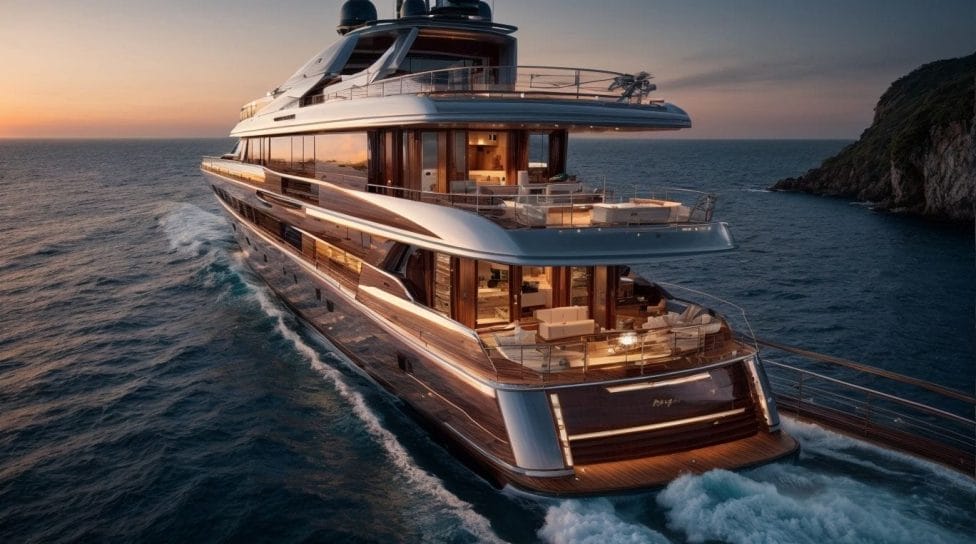
Photo Credits: Jetsetlegion.Com by Jordan Lee
Are you considering purchasing a water vessel for your next adventure on the sea? With so many options available, it can be overwhelming to decide between a yacht and a boat. In this section, we will break down the key factors to consider when choosing between a yacht and a boat. From the type of activities you plan to do, to your budget and level of experience, we will explore how each of these elements can influence your decision. So let’s dive in and discover which water vessel is the right fit for you.1. Activities
When choosing between a yacht and a boat, consider the activities you plan to do on the water. Here are some steps to help you decide:- Make a list of your favorite water activities, such as fishing, water skiing, or cruising.
- Research the requirements for each activity. Some may require specific equipment or amenities.
- Determine if the size and design of a yacht or a boat align with your activity needs.
- Consider your budget and the cost of owning or renting a yacht versus a boat.
- Think about the level of experience and skill required for your desired activities. Yachts may require more expertise.
2. Budget
When determining the budget for purchasing a yacht or boat, it is important to consider several factors. Follow these steps to help determine the appropriate budget:- Research and compare prices of various types of yachts and boats.
- Take into account any additional costs such as maintenance, insurance, mooring fees, and fuel.
- Evaluate your financial situation and determine a comfortable spending limit.
- Factor in any potential financing options or loans that may be necessary to cover the cost.
- Consider the potential resale value of the yacht or boat if you plan to sell it in the future.
3. Maintenance
Maintaining a yacht or a boat requires regular and proper care to ensure its longevity and reliability. Here are some key steps to consider for maintenance:- Inspect and clean the hull regularly to prevent the buildup of marine growth and damage from saltwater corrosion.
- Check and maintain the engine, including oil changes, filter replacements, and regular servicing to keep it running smoothly.
- Monitor and maintain the electrical systems, including battery checks, wiring inspections, and repairing any faulty connections.
- Keep the interior clean and dry, regularly cleaning upholstery, carpets, and surfaces to prevent mold or mildew growth.
- Regularly check and maintain safety equipment such as life jackets, fire extinguishers, and navigation lights to ensure they are in proper working order.
4. Experience and Skill Level
In considering the experience and skill level required for yachts and boats, there are several factors to keep in mind.- Yachts: Yachts typically require a higher level of experience and skill to operate due to their larger size and more complex systems. Sailing yachts, in particular, require knowledge of navigation, wind patterns, and sail handling.
- Boats: Smaller boats, such as sport fishing boats or pontoon boats, are generally easier to operate and may require less experience. However, some motor yachts may still require a certain level of skill.
- Training: Regardless of the type of vessel, it is recommended to have proper training and certification to ensure safety and competence on the water.
- Experience: Having more experience with boating allows for a greater comfort level when operating different types of vessels. Starting with smaller boats and gradually working up to yachts can be beneficial.
